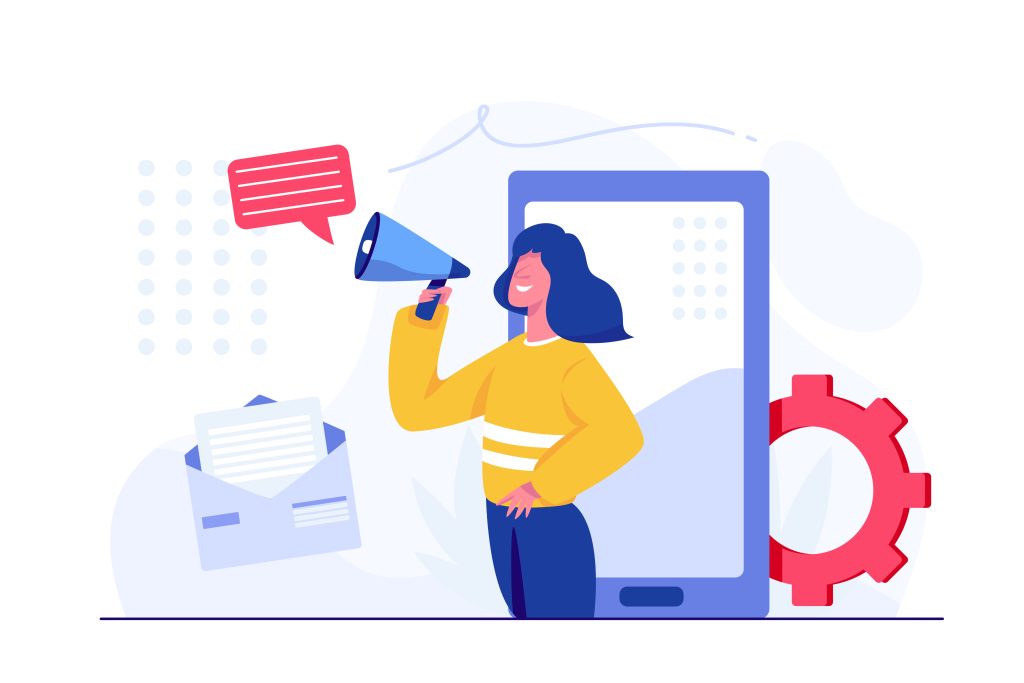People are actively redefining what it means to be “informed” as they navigate today’s fast-paced, algorithm-driven information landscape. They no longer just memorize headlines or mention current events in casual conversation. Instead, they interact with news in dynamic, complex ways—choosing how to access it, critically evaluating sources, and interpreting it through personal and societal contexts. This evolving behavior raises a crucial question: What does it really mean to be informed today?

The Information Explosion—and Its Consequences
People once stayed informed by reading newspapers, watching the nightly news, or subscribing to a few trusted magazines. Today, we receive information through an overwhelming number of channels—social media feeds, podcasts, push notifications, YouTube explainers, newsletters, Reddit threads, and beyond. Statista reports that users generate over 328 million terabytes of data online every day (Statista, 2023). This flood of content is unprecedented, but having more information doesn’t automatically mean it’s valuable or true.
Instead, the sheer quantity of information often leads to information fatigue. Studies have shown that information overload can impair decision-making and reduce our ability to critically assess what we consume (Eppler & Mengis, 2004). In short, we’re drowning in content while starving for meaning.
The Algorithm is the New Gatekeeper
Historically, human editors played a role in deciding what was “newsworthy.” Today, that gatekeeping role has largely shifted to algorithms. Whether it’s Google’s ranking system, TikTok’s “For You” page, or Facebook’s newsfeed, what we see is increasingly curated by machine-learning models designed to maximize engagement—not understanding.
This creates a new kind of bubble: a personalized information echo chamber. You may feel informed because your feed is full of content—but that content may simply reflect your biases, interests, and previous clicks. And unlike traditional gatekeepers, algorithms are opaque and rarely held accountable.
Staying Informed Requires Active Engagement
In today’s media environment, staying informed takes deliberate action. You can’t just scroll and skim anymore. To stay genuinely informed, you need to:
- Cross-verifying sources to avoid misinformation
- Seeking out diverse viewpoints to escape filter bubbles
- Understanding context, not just headlines
Take, for example, the recent coverage of climate policy changes. A trending clip on social media may highlight a protest or a politician’s soundbite. But truly understanding the issue means looking at legislation, reviewing expert commentary, and tracing the historical context—none of which typically fits into a 60-second reel.
Misinformation: A Persistent Threat
The spread of misinformation complicates what it means to be informed today. According to a study by the MIT Media Lab, false news spreads significantly faster on social media than true stories (Vosoughi et al., 2018). Part of this is due to the emotional charge of fake content—it’s more likely to be shocking, simplified, or aligned with viewers’ existing beliefs.
In this climate, being informed also means being misinformation-literate. Recognizing when content is manipulated, selectively edited, or taken out of context is as important as knowing the content itself.
Rethinking Authority and Expertise
Another emerging trend is the decline of traditional expert authority. In digital spaces, a YouTuber or influencer with a large following may be perceived as more credible than an academic with decades of research experience. The democratization of content has allowed more voices to participate—but also blurred the lines between informed commentary and speculation.
It’s now up to individuals to evaluate the credibility of the source, rather than relying on institutional reputation alone. Indicators of credibility include transparent citations, professional affiliations, and peer-reviewed work—not just likes and shares.
Practical Ways to Be Truly Informed Today
To respond to the changing landscape of information, here are some practical steps individuals can take to stay genuinely informed:
1. Curate Your Feeds Intentionally
- Follow sources across the ideological spectrum
- Use tools like Ground News to compare how different outlets cover the same story
- Subscribe to fact-based, long-form journalism newsletters (e.g., The Atlantic, Foreign Affairs)
2. Diversify Your Information Diet
- Mix digital and non-digital formats (books, print magazines, peer-reviewed journals)
- Listen to podcasts or attend webinars hosted by domain experts
- Read global perspectives to avoid domestic-centric narratives
3. Learn to Identify Manipulative Content
- Be skeptical of emotionally charged headlines or overly simplified narratives
- Reverse-image search viral photos or videos
- Use fact-checking sites like Snopes or PolitiFact
4. Slow Down Your Consumption
- Use a “pause and verify” rule before resharing content
- Allocate focused time each week for in-depth reading
- Reflect on how a piece of information fits into broader social or historical contexts
Information vs. Understanding
Perhaps the most fundamental shift in what it means to be informed today lies in recognizing the critical difference between merely having access to information and truly understanding it. While data may be available at our fingertips, that alone doesn’t make us informed. Instead, to be genuinely informed, we must go beyond surface-level awareness—we need to interpret, synthesize, and understand the context in which that information exists.
In other words, being exposed to facts isn’t enough; what matters more is our ability to connect the dots, evaluate credibility, and apply what we’ve learned in a meaningful way. As a result, informed individuals are not just consumers of content—they are thoughtful participants in shaping knowledge.
In a world where artificial intelligence can generate plausible-sounding content in seconds, the ability to think critically and question intelligently becomes even more essential. Being informed now means being proactive, skeptical, and constantly reflective.
Final Thoughts
Rethinking what it means to be informed today isn’t just a theoretical exercise—it’s a survival skill. The modern information environment is designed for engagement, not enlightenment. But with mindful effort, it’s still possible to rise above the noise and cultivate genuine understanding. As we navigate this evolving landscape, it’s critical that we redefine informed citizenship not as passive awareness, but as active, conscious engagement with the world around us.
References
- Vosoughi, S., Roy, D., & Aral, S. (2018). The spread of true and false news online. Science, 359(6380), 1146–1151. https://doi.org/10.1126/science.aap9559
- Eppler, M. J., & Mengis, J. (2004). The concept of information overload: A review of literature from organization science, accounting, marketing, MIS, and related disciplines. The Information Society, 20(5), 325–344. https://doi.org/10.1080/01972240490507974
- Statista. (2023). Amount of data created on the internet every day. https://www.statista.com/statistics/871513/worldwide-data-created
- Ground News. https://ground.news
- Snopes. https://www.snopes.com
- PolitiFact. https://www.politifact.com






